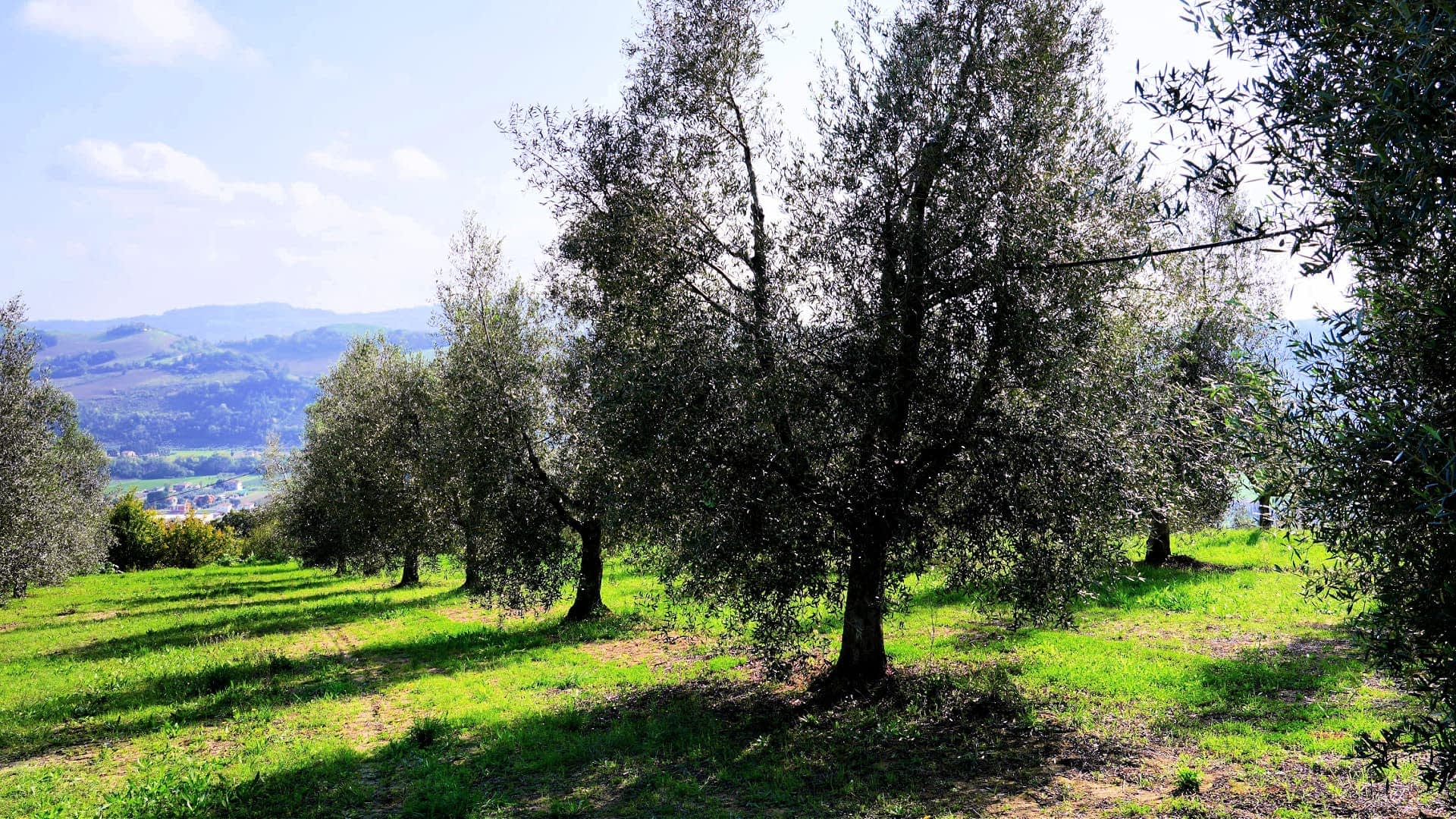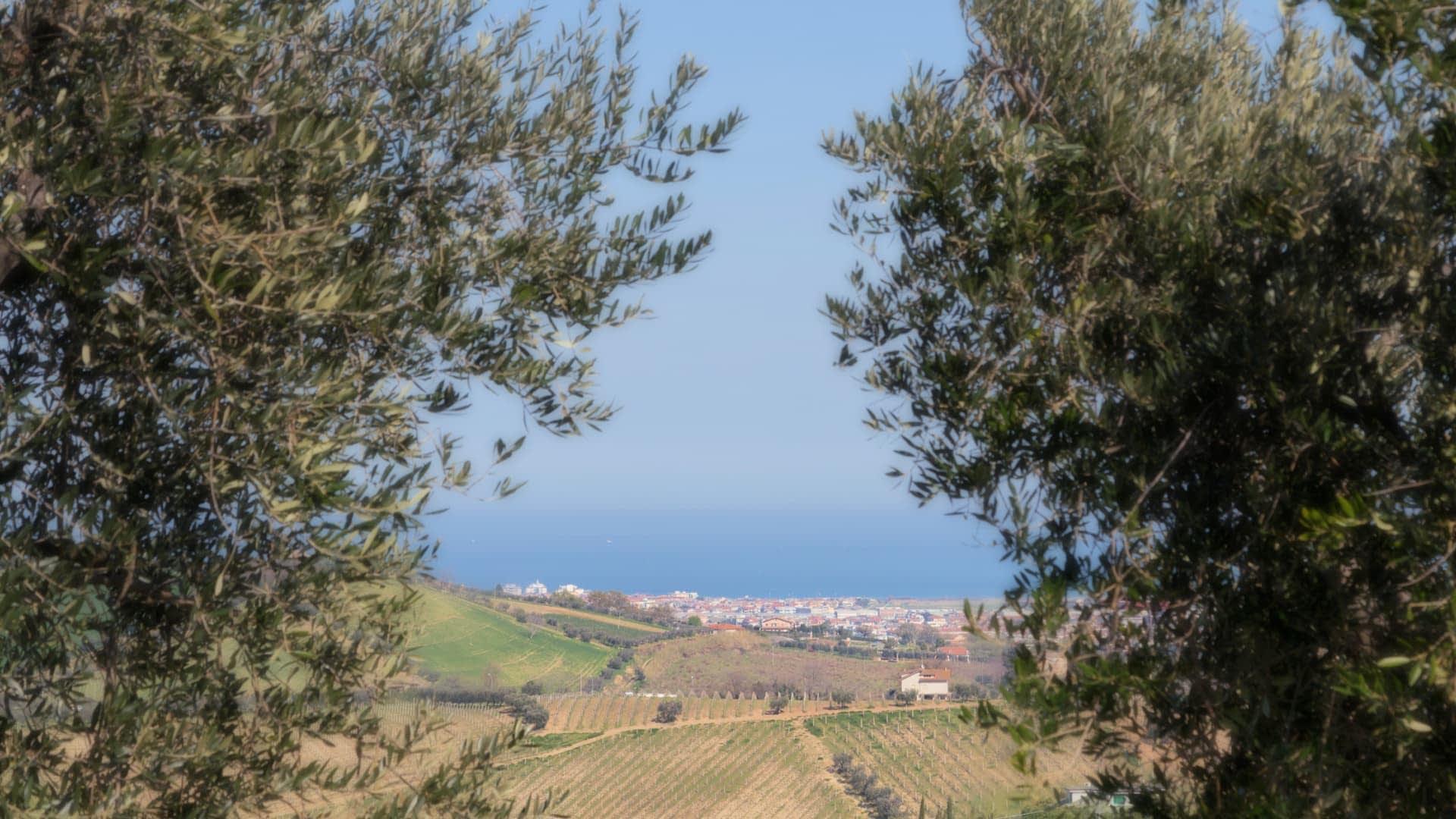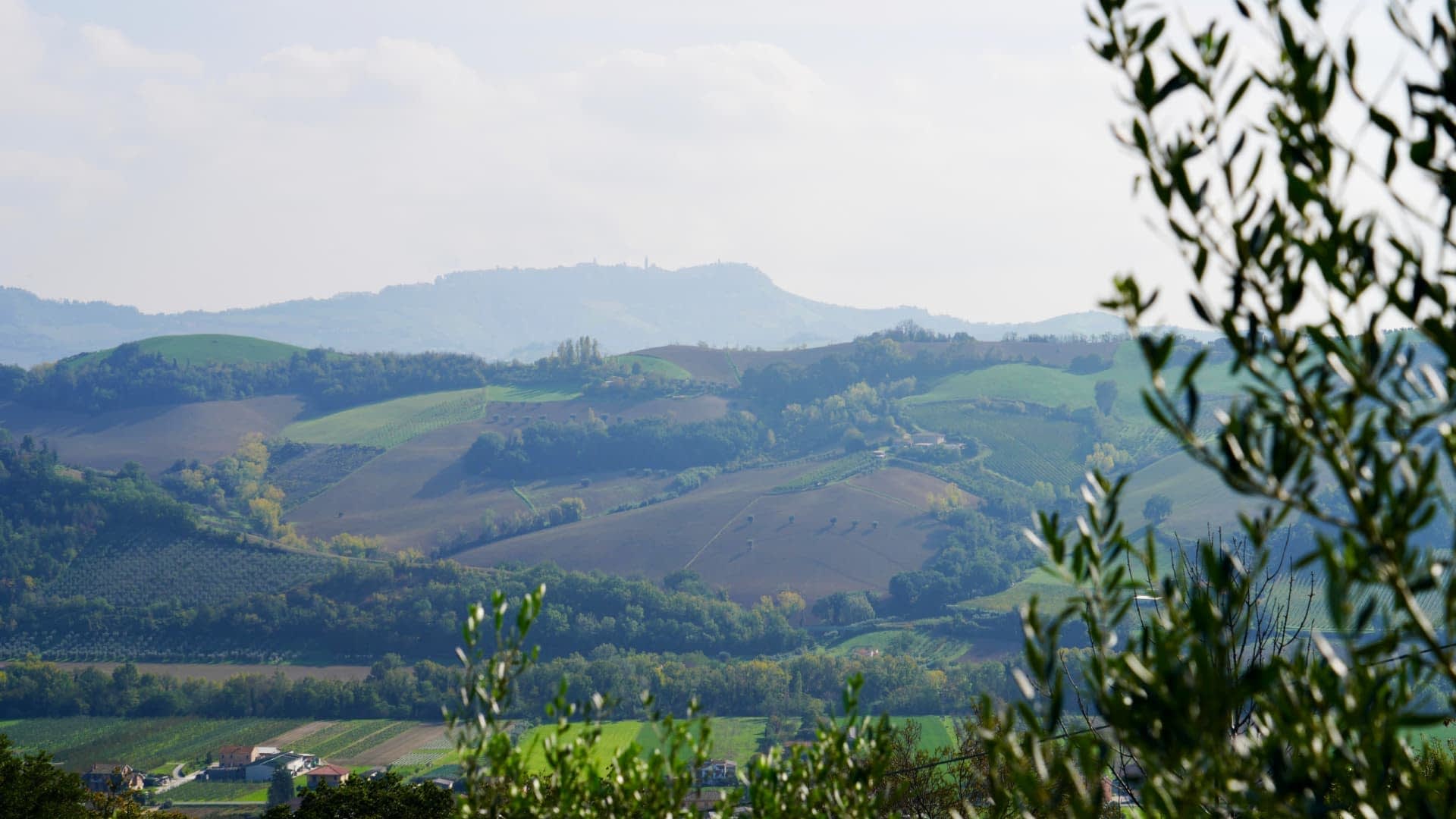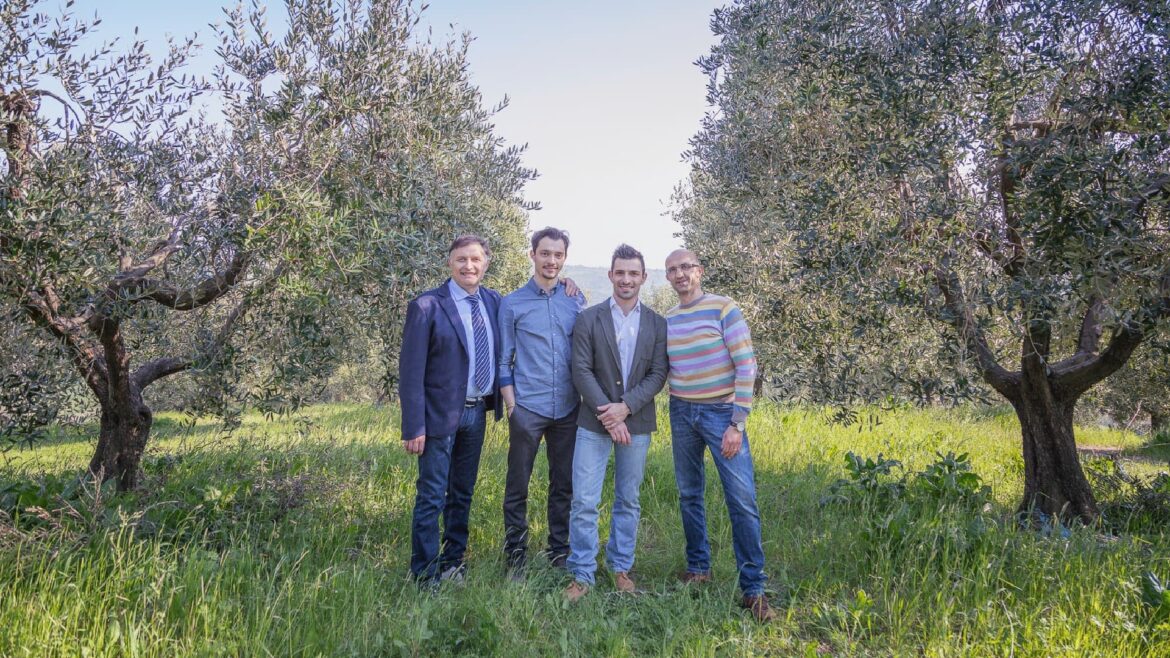Summary
Alfredo Agostini established a small olive press in Petritoli 80 years ago, which has now evolved into Frantoio Agostini run by his sons and nephews, exporting olive oil to over 15 countries. The family business focuses on maintaining traditional olive groves, especially the delicate Ascolana Tenera variety, while adapting to modern technologies to address challenges posed by climate change and expanding their market globally.
Eighty years ago, Alfredo Agostini established a small olive press in Petritoli, a picturesque village nestled between the Sibillini Mountains and the Adriatic Sea, in the central Italian region of Le Marche.
As the enthusiasm at the end of World War II fueled a wave of social and economic development across the country, he managed to build up a thriving local business with hard work and dedication.
Today, his sons and nephews run Frantoio Agostini, which is equipped with the most advanced technology and exports extra virgin olive oil to more than 15 countries.
When we were kids, (my brother and I) harvested olives while wearing down jackets. Today, our children pick the fruits in t‑shirts.- Elia Agostini, export manager, Frantoio Agostini
Besides the facility situated near Fermo, the family company oversees about 30,000 olive trees in Ancona.
The fruit of these orchards is carefully crafted into award-winning blends and monovarietals, including Sublìmis and Ascolana Tenera, each of which earned a Gold Award at the 2025 NYIOOC World Olive Oil Competition.
“Part of our groves overlook the sea, while another portion extends inland, and almost all of them retain a traditional planting pattern,” Elia Agostini told Olive Oil Times. “We have chosen to maintain their original, extensive layout for various reasons.”
See Also:Producer Profiles
“Not only does it seem more suitable for this terrain, but it also allows us to save water,” he added. “Moreover, the landscape profile has been shaped by these orchards, which characterize the territory. This holds a fundamental value for us, and we strive to express it through our products.”
The olive groves feature varieties widespread in central Italy, such as Frantoio and Leccino, as well as others native to Marche, including Raggia and Ascolana Tenera.
“Ascolana is a very delicate fruit that can be found only in small quantities, with high production costs,” Agostini said.” Its cultivation requires extra effort, but we continue to work with it, as we believe that it is one of the maximum expressions of the olive growing of this region, and we consider it our signature feature.”
Agostini, who is in charge of the company’s exports, works alongside his brother, Marco, the company’s plant manager, and his uncle, Maurizio, the company’s contact person for catering. His father, Gaetano, also known as Ugo, is the supervisor and production manager.
 Frantoio Agostini oversees 30,000 olive trees in Ancona. (Photo: Frantoio Agostini)
Frantoio Agostini oversees 30,000 olive trees in Ancona. (Photo: Frantoio Agostini)
“My father was born in the nearby hamlet of Ortezzano, where my grandfather relocated the mill for a period, and where we still own a historic olive grove,” Agostini said. “Then, they returned to Petritoli.”
In the 1990s, Agostini’s parents and uncle took the reins of the company and made the great leap forward towards the modern milling system. They scrapped presses and pressing mats, switching to continuous cycle technology.
“The initiative was taken by my father, who had sensed that olive growing was poised to take a new direction and there was a need for deep modernization,” Agostini stressed.
Their mill has been continuously updated over time with the latest technologies. This year, to celebrate its eightieth anniversary, it will undergo renovation to maintain high-quality standards and address the challenges posed by climate change.
“Olive growing has changed significantly in recent years, and in our opinion, it is undeniable that there has been a sharp increase in temperatures due to climate change,” Agostini said. “When we were kids, [my brother and I] harvested olives while wearing down jackets. Today, our children pick the fruits in t‑shirts, and we must use air conditioning in the facilities.”
“We adopted the latest generation machinery that can work by lowering the temperature of the olives during each phase of production,” he explained. “We studied this system with specialized technicians from Pieralisi. As we have done so far, we continue to work with this company from Marche, which is a world leader in the production of milling equipment, and this further reflects our bond with the territory.”
The upcoming olive oil campaign will be launched with the opening of the new mill. The harvest typically begins in the last week of September with Ascolana Tenera, an early-ripening variety.
“From Ascolana, we obtain an extra virgin olive oil with a captivating scent of tomato leaves and grass and a great balance between nose and palate. Our customers much appreciate its perfumes and harmony,” Agostini said.
“This variety needs to be closely monitored, as it can be prone to attacks by the olive fruit fly, since it has a very high pulp-stone ratio,” he added. “This characteristic also leads to low yield, with a seven-percent average that can reach up to nine percent in optimal seasons.”
 Frantoio Agostini’s olive groves overlook the Adriatic Sea in the central Italian region of Le Marche. (Photo: Frantoio Agostini)
Frantoio Agostini’s olive groves overlook the Adriatic Sea in the central Italian region of Le Marche. (Photo: Frantoio Agostini)
Over the last seven years, the company has increased its production by acquiring additional land on hilly terrain further north in the region.
“Since most of our groves are organically managed, we decided to head north and to higher altitudes, which allow us to avoid some issues, such as the fly attacks,” Agostini said. “We strongly believe and continue to invest in the olive growing of the Marche region.”
“Over the past years, we have actively promoted this region and its oils around the world with many projects,” he added. “We have truly worked to showcase this region globally, but I have to say that this region has done the same with us.”
Agostini’s passion for his work shines through when he speaks about his land and extra virgin olive oils. And yet, until some years ago, his professional and life journey could have taken a different direction.
Having earned a degree in law and a master’s degree in tax law, he then pursued a fruitful internship, after which he applied to several companies. While awaiting responses from the firms, he came back home, and one day his father asked for his assistance in replying to some company emails.
“I remember the conversations with my friends about what to do after university, some years back. I was certain that I would not come back here, because at that time I did not see any future in this job,” he said. “Nonetheless, during those days, working with my dad, I realized that many things had changed in the food sector. Consumers showed awareness and an ever-increasing interest in high quality, and I saw great potential. I didn’t know whether to stay or leave.”
“Then, I talked with my brother, who already worked in the company, and that was a turning point. We shared our views, and that exchange kept me up at night,” Agostini revealed. “Our grandparents worked so hard and made sacrifices to create what is now our company, and the whole family put in so much effort. If I had taken a different path, what would have happened to all of that? I decided to stay, and it was the best choice I could make. Today, I believe that oil is one of the most fascinating products that agriculture gives us.”
 https://img-cdn.oliveoiltimes.com/cb:2sys.247e0/w:auto/h:auto/q:67/ig:avif/id:f2ebd1f1a862e00b39f85121f71e2afd/https://www.oliveoiltimes.com/hg4.jpg
https://img-cdn.oliveoiltimes.com/cb:2sys.247e0/w:auto/h:auto/q:67/ig:avif/id:f2ebd1f1a862e00b39f85121f71e2afd/https://www.oliveoiltimes.com/hg4.jpg
Agostini believes that a family business has a peculiar entrepreneurial strength. He observed that, on the one hand, it can be more challenging to manage due to the emotions involved; on the other hand, it creates the conditions for intergenerational investments.
“To give an example, when you plant a traditional olive grove, just like we did a few years ago, you know that the trees will come into production in ten years,” he said. “As a family company, we found motivation to invest in such a long-term plan. In my opinion, this is a key asset for a business like ours.”
The company exports its extra virgin olive oils to 18 countries, and its market is growing steadily. Currently, the largest volumes are sold in Germany, Croatia and the Netherlands. Excellent growth rates are recorded in Japan, Canada, Mexico and the United States, as well as in Romania, Lithuania, Finland and South Korea.
“Working with foreign markets is so enriching,” Agostini said. “As an export manager, I try to understand how this product, which is so deeply rooted in our culture, can be expressed from different perspectives.”
“We have chosen to work with international partners who want to bring our territory to their country, and we are doing this with our two most representative products, namely the Marche PGI and the monovarietal Ascolana Tenera,” Agostini added.
“Three years ago, while I was preparing the first order we received from a country that now is one of our established market, I couldn’t help but wonder what grandpa would say about the fact that our extra virgin olive oils are on so many tables and in so many kitchens around the world and if he would be proud of us all,” he concluded.


Dining and Cooking